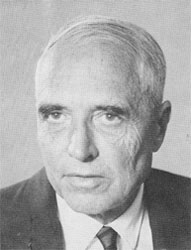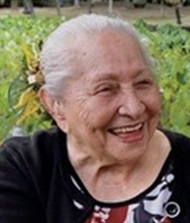
Oahu, also known as "The Gathering Place", is the third-largest of the Hawaiian Islands. It is home to roughly one million people—over two-thirds of the population of the U.S. state of Hawaii. The island is within Honolulu County and the state capital, Honolulu, is on Oʻahu's southeast coast. The island of Oʻahu constitutes the bulk of Honolulu County and had a population of 1,016,508 according to the 2020 U.S. Census, up from 953,207 people in 2010.

Mānoa is a valley and a residential neighborhood of Honolulu, Hawaiʻi. The neighborhood is approximately three miles (5 km) east and inland from downtown Honolulu and less than a mile from Ala Moana and Waikiki at 21°18.87916′N157°48.4846′W.
A Hawaiian name is a name in the Hawaiian language. Such names are popular not only in Hawaiian families, but also among other residents of Hawaii, and even in the United States mainland among both non-native and native Hawaiians.

Hawaii is a 1966 American epic drama film directed by George Roy Hill. It is based on the eponymous 1959 novel by James A. Michener. It tells the story of an 1820s Yale University divinity student who, accompanied by his new bride, becomes a Calvinist missionary in the Hawaiian Islands. It was filmed at Old Sturbridge Village, in Sturbridge, Massachusetts, and on the islands of Kauai and Oahu in Hawaii.

Kimberly Jonelle 'Kimee' Balmilero is an American actress and singer of Filipino descent.
Noelani Pantastico is an American ballet dancer. She was formerly a principal dancer with Pacific Northwest Ballet in Seattle and also danced at the Les Ballets de Monte-Carlo in Monaco.

"He Mele Lāhui Hawaiʻi" was composed by Liliʻuokalani in November 1866 at the request of Kamehameha V, who wanted a national anthem to replace the British anthem "God Save the King". It replaced Lunalilo's composition "E Ola Ke Aliʻi Ke Akua" as the national anthem. Liliʻuokalani wrote: "The king was present for the purpose of Criticising my new composition of both words and music, and was liberal in his commendations to me on my success. He admired not only the beauty of the music but spoke enthusiastically of the appropriate words, so well adapted to the air and to the purpose for which they were written. This remained in use as our national anthem for some twenty years or more when my brother composed the words Hawaiʻi Ponoʻī."

Samuel Hoyt Elbert was an American linguist who made major contributions to Hawaiian and Polynesian lexicography and ethnography. Born on a farm in Des Moines, Iowa, to Hugh and Ethelind Elbert, Sam grew up riding horses, one of his favorite pastimes well into retirement. After graduating from Grinnell College with an A.B. in 1928, he earned a certificate in French at the University of Toulouse and traveled in Europe before returning to New York City, where he waited tables, clerked for a newspaper, reviewed books, and studied journalism at Columbia University. Wanderlust took him to French Polynesia, first to Tahiti and then to the Marquesas, where he quickly became proficient in Marquesan. In 1936, he went to work for the United States Geological Survey in Hawaiʻi. There he met researchers on Pacific languages and cultures at the Bishop Museum, chief among them Mary Kawena Pukui, from whom he learned Hawaiian and with whom he worked closely over a span of forty years. When war broke out in the Pacific, the U.S. Navy employed him as an intelligence officer studying the languages of strategically important islands. He was posted to Samoa in 1943, then to Micronesia, where he collected and published wordlists for several island languages.

David Malo or Davida Malo (1795–1853) was a chiefly counselor, a Hawaiian intellectual, educator, politician and minister. He is remembered by subsequent generations of Hawaiian people and scholars primarily as a Native Hawaiian historian of the Kingdom of Hawaii. In 1852 he was ordained as a minister at Kēōkea, Maui.

Edith Kawelohea Kapule McKinzie was a Kanaka Maoli genealogist, educator, author, and an expert in hula and chant. She published two books on Hawaiian genealogy, was Director of the Hawaiian Language Newspaper Indexing Project, and taught traditional hula and chant across the United States. In 2004, she was named a Living Treasure of Hawaii for her contributions to Hawaiian culture and heritage.
Noelani Goodyear-Kaʻōpua is a Kanaka Maoli scholar and educator whose work centers on Native Hawaiian social movements, culture-based education, and energy and food politics.

Denise Noelani Manuela Arista is an associate professor of Hawaiian and US History in the Department of History at the University of Hawai'i at Mānoa. Her scholarship focuses on 19th century American History, Hawaiian History and Literature, Indigenous epistemology and translation, and Colonial and Indigenous history and historiography.

"Nalowale i ke 'ehu o he kai" is the eighteenth episode of the tenth and final season of Hawaii Five-0. It aired on February 28, 2020. The story for the episode was written by Zoe Robyn, and the teleplay was written by Talia Gonzalez and Bisanne Masoud. Tate Donovan directed the episode. The episode included a crossover appearance from Zachary Knighton as Rick Wright, his character from Magnum P.I.
Esther Takakura Mookini is an American linguist responsible for several widely used Hawaiian-language dictionaries.
Brandy Nālani McDougall is a Kānaka Maoli author, poet, educator, literary activist, and associate professor at the University of Hawaiʻi at Mānoa.
Jamaica Heolimeleikalani Osorio is a Kanaka Maoli poet, educator, and activist who lives and works in Hawai'i. She is known for her poetry and activism centered on Hawaiian culture and identity.
Pete Kaululaʻau Gustave Thompson was an activist and professor in the Ethnic Studies department at the University of Hawaiʻi at Mānoa. He is best known for his work in the Waiāhole-Waikāne struggle and the protests against the construction of the Interstate H-3.
Jonathan Kamakawiwoʻole Osorio is a Native Hawaiian professor of Hawaiian studies. He is the Dean of the Hawaiʻinuiākea School of Hawaiian Knowledge at the University of Hawaiʻi at Mānoa.









